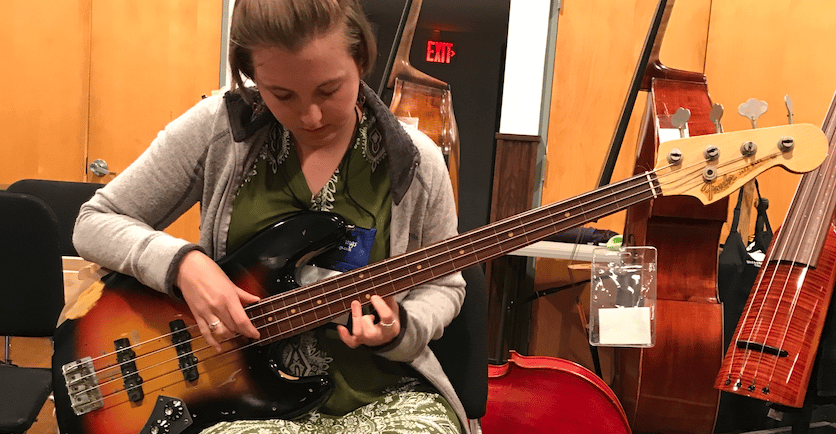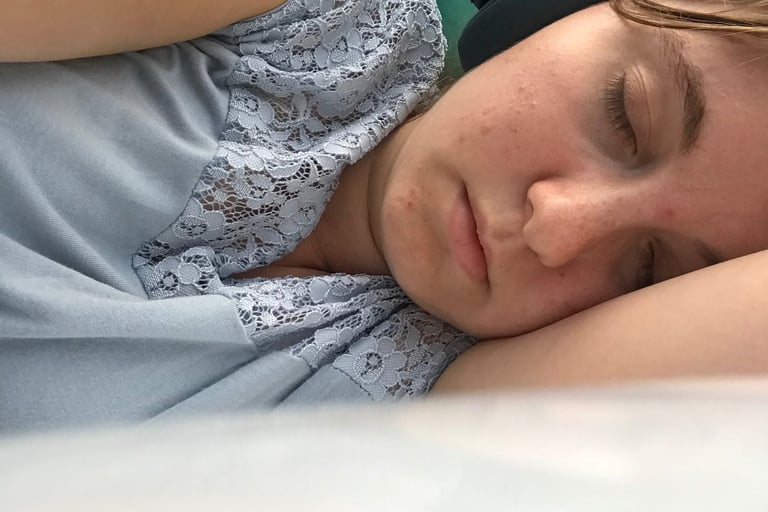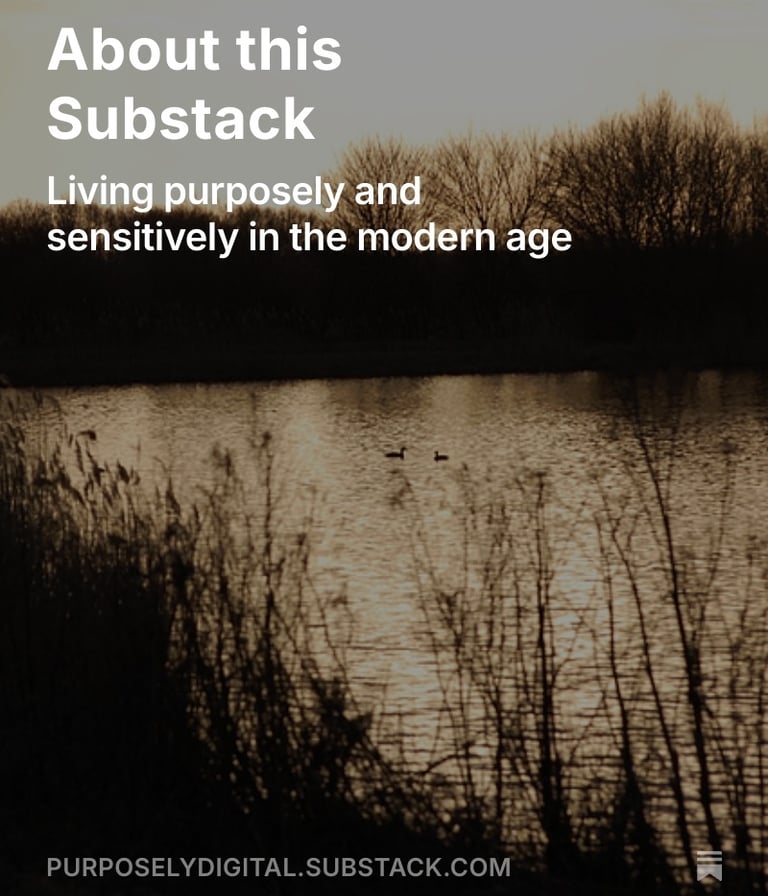50% OFF FALL PROMOTION! Step into fall purposely with 1:1 coaching. Only 2 coaching slots available. Click HERE.
Sensitivity: What’s Noise Got to Do with It?
Accepting and adapting to noise sensitivity
Sarah E. Carter, PhD
8/19/20256 min read


As I write this, a neighbor is intermittently drilling above my head.
It’s not an unreasonable hour to make such noise. I know they do not intend to cause me distress.
And yet - I’m shaking. I have some tears in my eyes. My earbuds are in, trying to tune it out.
But it’s still stimulating, not the same as silence.
And the worst part? I don’t know when it will end. My nervous system is on red alert.
***
Earlier today, I read an article from the BBC on noise sensitivity. I am heartened to see more and more of these articles coming up, when previously having such sensitivity was dismissed as being controlling, rude, or prudish. More articles and increasing research into people who are distressed by noise has given me hope.
I have been sensitive my whole life, with sound something that particularly affects me. It’s come with its benefits (especially as a musician), but also its drawbacks. For years I felt bad that noise could cause me to inadvertently tense up and become overwhelmed, sometimes resulting in crying, panic attacks, or lashing out, followed by periods of dissociation. I was told to not be controlling and to tough it out, let it go, move on. But it was as if my body would not listen to my conscious mind, a reaction to stress as out of my control as the startle response.
Many neurodivergent folk reading this will likely see themselves here. Noise sensitivity is highly associated with being neurodivergent, something I am currently exploring for myself, especially because my reactions when I reach a point of sensory overload resemble autistic meltdowns and shutdowns. Many noise-sensitive comrades-in-arms I have been able to find solidarity with over the years have been ADHDers and autistic folks.
However, sensitivity comes in all different kinds of shapes and flavors - and noise sensitivity is the same. You may be noise sensitive without being neurodivergent - and vice versa. Noise sensitivity is generally divided into general noise sensitivity, misophonia (strong emotional reaction to specific sounds), and hyperacusis (sound perceived as louder than it actually is), although I personally find the lines between the three a bit blurry.
I was assessed for hyperacusis a few years ago and did an auditory test. During the test, I perceived sounds most could not at far ends of human hearing and also struggled to follow a conversation with lots of background noise. I was also left tense, anxious, and in some pain after the test. The result was hyperacusis positive. However, over the years I have also identified aspects of my experience that would fall under the definition of misophonia (e.g., strong emotional reactions to chewing, door slamming, or repetitive drum machines in music) and general noise sensitivity (especially in shared spaces or from neighbors). In my flavor of sensitivity, noise sensitivity is interlocking and multi-faceted in a manner that does not fall nicely into these labels.
***
My survival strategy has become actively seeking (and avoiding) certain noise environments. In many ways, I’ve organized my life around noise. College in the US in a dorm room was a nightmare for me and deeply impacted my mental health, to the point that my family and I had to advocate for a single occupancy room on a quiet floor so that I could continue with college. Today, I avoid loud hotels and hostels because staying in them previously has left me physically sick and panicky. I also often sleep in a separate bedroom from my partner, because he snores, and even had a panic attack early on in our relationship when he stayed the night and I hit overload.
Living in the Netherlands can be especially challenging in a crowded country where sharing walls and close neighbors are the norm. I have moved houses before in pursuit of quiet, for things others did not even notice. Still, in our current quiet-by-Dutch-standards neighborhood, I struggle to fall asleep before my neighbors above me do, even though their footsteps and activity are within mosts acceptable levels of noise. People walking and biking past our front window - every rattle and prattle - is picked up by me. Looking to the future, the noise consideration could even draw me back to the US someday, as I long to have a home of our own in nature, no shared walls, no people buzzing by, with silence at night.
In the workplace, often open concept and shared spaces in the Netherlands, I found focusing to be utterly exhausting. I relish working from home now as an entrepreneur in my relatively quiet home office, and noise was a contributing factor in choosing the self-employed life.
When I have shared this with others, some have called this strategy unhealthy avoidance. I disagree. For me, it is a matter of caring for my mental health. I can survive if forced into a loud situation for some time, but may become overwhelmed and need recovery time after. It’s simply not sustainable in the long term, however. I used to think I had to “learn” how to thrive in a loud home, or an open office, and practiced strategies from breathwork to medication. Eventually I (and some others) believed I would become “desensitized.”
It wasn’t until the realization that maybe some environments do not work for me and how I am wired - and that that was OK - that I gained the freedom to find what works and consciously advocate for my body’s sensory needs. Even if it meant moving house, spending more money on quiet and private accommodation when traveling, or becoming self-employed.
***
Technology has added another layer of noise to the mix. The constant pinging of a smartphone, whether mine or someone else’s, causes me to tense up and my heart to race, even if I understand it is not a threat or use breathing techniques to try to regulate my nervous system. People can play music wherever, whenever or scroll reels endlessly in public, culminating in background noise that disrupt me from being able to focus on the conversation I am having.
In situations such as these - where another is involved - it can be a challenge to express what is happening to others who do not understand. I have been called controlling, unreasonable, and sensitive when I am trying to advocate for myself in a negative sensory situation. The fact that people usually respond dismissively or continue to cross my boundaries after I have let them know has only increased my anxiety around noise, because now I am also anxious about the potential conflict. As a person who genuinely does not want to inconvenience others, this can be enough for me to internalize it, try to tough it out, and ultimately, leads to me lashing out or getting sick.
In the past, and still some today I must admit, I don’t always go about expressing myself around noise in the wisest way. This can contribute to the other person involved reacting negatively. I can react to the person causing the noise with anger and panic, which is not the best way to start a conversation. But it’s getting better. I still feel anger and panic - as studies have shown, it is a knee-jerk response to noise that bypasses my conscious awareness and connects directly with emotion - but I can breathe and choose how to respond, creating distance between myself and my emotions. It’s not about not feeling, but accepting, and giving yourself space to choose how to respond. I can practice general self-care, such as getting enough sleep, eating well, practicing yoga, and spending time in nature, which support me in being less reactive. I’m particularly proud of how I advocated for myself on a recent yoga retreat, expressing to the teacher not once - but twice - calmly, gently, and with a bit of humor, that the music was bothering me. The drum track was making me very tense and my heart was racing. At one point, I even thought I might have a panic attack right then and there on my mat. But I spoke with her, she turned down her music and changed her music for the next session, and it was still upsetting me, so I kindly asked again, and thankfully she was receptive.
However, I am slowly coming to accept that we cannot control how others react to our requests. She may have said no and wanted to keep her music track, a track she obviously enjoyed very much, as is her right. In that case, I still had a choice to care for my sensory needs wisely. I would have removed myself from the session and taken quiet time to regulate myself elsewhere.
Still, while we might not be able to demand that the entire world turn down the volume for us, I hope that those who may not share our needs can offer empathy and compassion - as we can learn to offer them through self-care and breath. In addition, all can choose to respect the few places that do offer quiet solace - the quiet car on the train, the woods, the silent part of the library - to help create a more inclusive world. Listening and working together as the yoga teacher did with me to find solutions to noise issues with kindness could help save someone a lot of mental and emotional stress.
As stress from noise has been linked to cardiovascular disease and premature death, you could even be prolonging their life.
If you’d like to start exploring how noise affects you, I’d love to speak with you. You can book a complimentary clarity call here, where we will start defining what sensory environment you need to thrive - sensitively.
Photo: Trying to nap in 2018 while the neighbors were doing construction work. I ended up taking some days in a hotel room to recover and get some rest.


Enjoying Purposely, Sensitively, Digitally ?
Get notified when a new blog is posted (and access to other writings!) by subscribing on Substack!
Always and forever free. Offered with love. No payment required.


Did this post speak to you?
Let's chat! I'd love to hear from you.
Purposely Digital
Empowering Sensitive Humans
hello[at]purposely-digital.com
© 2025. Purposely Digital. All rights reserved.
Proudly AI Free
All writing done by humans, for humans
A Privacy-By-Design Business
Because it's your data - your choice
KvK #: 97684155
VAT ID: NL005284412B47
Business Address
De Nieuwe Erven 3
13359
5431 NV Cuijk
Nederland


